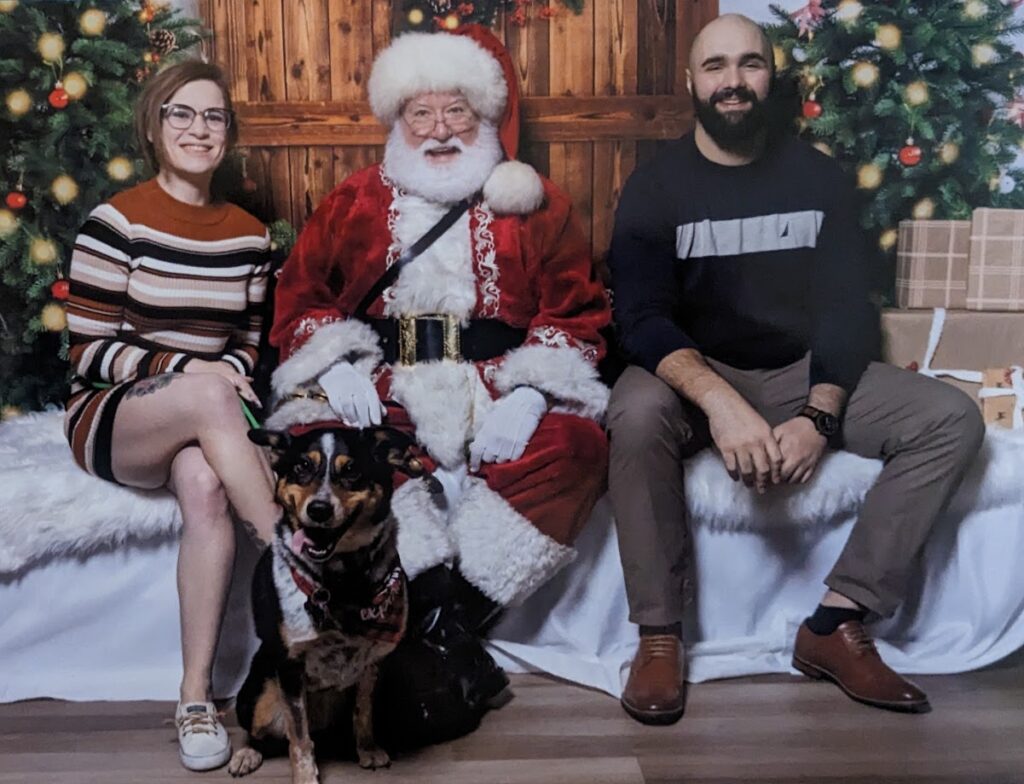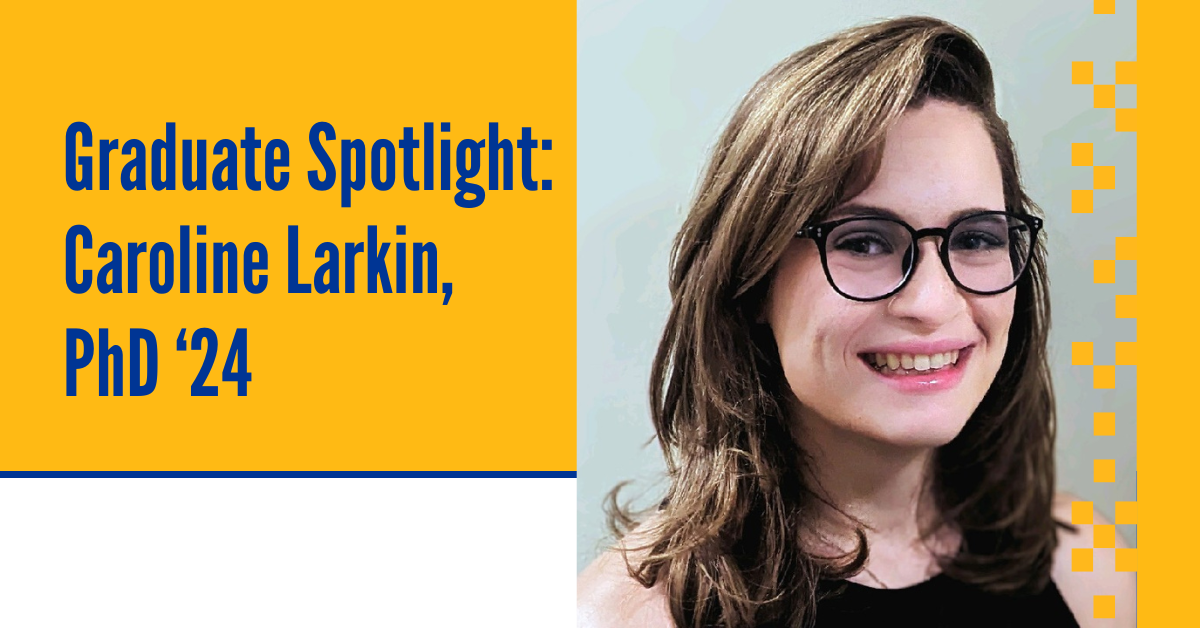Caroline Larkin grew up with the great discoveries of science a few steps away. As a child, Larkin lived next to the National Institutes of Health (NIH) headquarters in Bethesda, Maryland. She didn’t know it at the time, but she would one day make her own impact in the world of science and virology.
She had more of an interest in music than science growing up, but all of that changed when she enrolled in two classes in high school: foundations of programming and molecular biology.
“I loved molecular biology so much, like it completely changed the game for me,” Larkin said. “I think it’s absolutely fascinating how these tiny cells in our body have super complex mechanisms that we’re just beginning to understand.”
After that, Larkin never looked back. She studied computational biology as an undergraduate student at the University of Maryland Baltimore County, where she was a member of the prestigious Meyerhoff Scholars Program. This program is designed to increase diversity among future leaders in science, technology and engineering. Larkin said Meyerhoff prepared her to pursue a PhD in STEM.
She applied to a few computational biology PhD programs, but she chose the Joint Carnegie Mellon-University of Pittsburgh PhD Program in Computational Biology (CPCB).
Larkin, who was also accepted into Princeton, was drawn to Pitt because of the dynamics of the grad students here.
“They were really nice, fun and relatable and a little less stiff or rigid,” she said. “Just seeing that kind of collective community that the students had among each other was great.”
Once enrolled in CPCB, Larkin thrived in the program. With the assistance of her advisor, Associate Professor Jim Faeder, she found her research niche at the intersection of computational biology and virology. She worked with Dr. William Klimstra, a virologist at the Center for Vaccine Research, on a project to understand how viruses replicate in a cell.
Larkin is specifically focused on Eastern Equine Encephalitis virus, a virus endemic to New England that is transmitted through mosquitoes. She is passionate about using mathematical modeling to develop treatments for viruses.
Outside of her thesis work, Larkin said she enjoyed CPCB’s rotation process. She did a rotation in three labs and was able to explore different research perspectives.
“I liked that the rotations were relatively short, so I could see all these different approaches and test them out,” she said.
This interdisciplinary mindset is something Larkin hopes to carry throughout her career. She said she’s looking forward to paving her own path after graduation and integrating science into the things she loves. Larkin, who is a competitive bodybuilder, developed an interest in exercise science from her time training at the gym.
“I’ve learned a lot from my PhD in terms of how to understand the best evidence-based approaches for weightlifting,” she said. “So, it’s really interesting to combine the two and discover the optimal ways of training to do well in my hobby.”
She will also be starting a postdoctoral position in Rachel Gottschalk’s lab in the Department of Immunology, where she hopes to learn more about biology and immunology. Her long-term goals include becoming a science advocate, so she can bridge the gap between society and science.
“I think science needs a voice to be heard in government and business decisions, so I’m excited to communicate that to people,” she said.
What was your favorite class in the CPCB program?
“I really enjoyed Cell Systems with Robin Lee and Jim Faeder. I like creating models of systems based off the biology.”
What helped you to de-stress while earning your PhD?
“I have my dog, Clover, listed in my acknowledgements for one of my papers because she has been such a support to me throughout my PhD process.”

What is your advice to prospective students?
“Trust the process and learn to advocate for yourself. You are the guardian of your well-being, and you are the ultimate one responsible for your own progress.”


